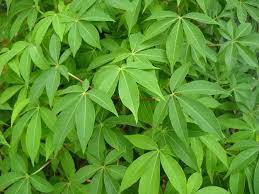The Importance of Cassava Leaves: A Nutritional and Cultural Treasure
Cassava, scientifically known as Manihot esculenta, is a staple crop in many tropical regions, providing a significant source of carbohydrates through its tuberous roots. However, the leaves of the cassava plant are often overlooked, despite their immense nutritional and cultural value. This article delves into the importance of cassava leaves, highlighting their nutritional benefits, culinary uses, and cultural significance in various societies.
Nutritional Benefits
Cassava leaves are rich in nutrients, making them an important addition to diets in regions where cassava is cultivated. They are an excellent source of protein, offering up to 25% protein content, which is particularly valuable in areas where animal protein sources are scarce. Furthermore, cassava leaves are packed with essential vitamins and minerals, including vitamin A, vitamin C, calcium, and iron.
Vitamin A is crucial for maintaining healthy vision and immune function, while vitamin C acts as a powerful antioxidant and supports the body’s healing processes. Calcium and iron are vital for bone health and preventing anemia, respectively. The combination of these nutrients makes cassava leaves a formidable ally in combating malnutrition, particularly in developing countries where dietary deficiencies are prevalent.
Culinary Uses
In many cultures, cassava leaves are prepared and consumed in various ways, contributing significantly to local cuisines. They can be cooked, steamed, or dried and are often used in soups, stews, and side dishes. In West Africa, for instance, cassava leaves are a key ingredient in dishes like “saka saka†or “pondu,†where they are cooked with palm oil and groundnuts, creating a rich and flavorful meal.
In Southeast Asia, particularly in countries like Thailand and Indonesia, cassava leaves are used in salads or stir-fried with spices and other vegetables. The leaves can also be ground into a powder for use in sauces or as a nutritional supplement. This versatility in culinary applications not only enhances the flavor of meals but also enriches them with essential nutrients.
Cultural Significance
Beyond their nutritional and culinary aspects, cassava leaves hold cultural significance in many communities. In several African nations, they are considered a traditional food source and are often linked to family gatherings and communal meals. The preparation and sharing of cassava leaf dishes can foster social bonds and cultural identity, serving as a reminder of heritage and agricultural practices.
Moreover, cassava leaves are often used in traditional medicine. In some cultures, they are believed to possess healing properties and are used to treat various ailments, including fevers and digestive issues. This connection between food and health underscores the holistic view of nutrition held by many indigenous peoples, where food serves both as sustenance and medicine.
Environmental and Economic Aspects
From an environmental perspective, cassava is a resilient crop that can thrive in poor soils and withstand drought conditions. The leaves, often considered a byproduct of cassava cultivation, can be utilized to minimize waste and enhance sustainability. By incorporating cassava leaves into diets, communities can maximize the use of the cassava plant, promoting food security and reducing reliance on less sustainable food sources.
Economically, promoting the consumption of cassava leaves can create new market opportunities for farmers. As awareness of the nutritional value of these leaves grows, there is potential for local and international markets to expand. This could provide additional income streams for farmers and contribute to rural development.
Conclusion
The cassava leaf is a nutrient-rich, versatile, and culturally significant part of the cassava plant that deserves greater recognition. Its high protein content, vitamins, and minerals make it a valuable food source in regions facing nutritional challenges. Moreover, its culinary versatility enhances traditional dishes, while its cultural significance fosters community bonds and preserves heritage.
As global awareness of food security and nutrition increases, it is essential to recognize and promote the importance of cassava leaves. By doing so, we can not only improve dietary diversity but also support sustainable agricultural practices and strengthen local economies. Embracing the cassava leaf as a vital component of our diets may pave the way for healthier communities and a more sustainable future.



No comments yet
Be the first to share your thoughts!